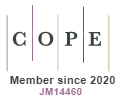Between ideal and possible: paths of teacher training through on-line conversation wheels
DOI:
https://doi.org/10.5585/dialogia.n36.18701Keywords:
Blended Learning, Emergency remote education, Teacher trainingAbstract
The article aims to share the teacher training actions, created at UFLA, in response to the demands emerging in the current pandemic context. It is based on qualitative research, characterizing it as descriptive, based on the TPACK model (MISHRA and KOELLER, 2006) as a theoretical tool in the construction of actions and in the analysis of the route and data produced. We aim to collaborate with the historical record of the enormous educational challenges faced in an unprecedented way by our generation in this context and to contribute to the reflection of the importance of the continued training of pedagogical and technological knowledge for an effective action to resume formal education through technological resources. In view of the results obtained, it can be deduced that proposals for continuing education using virtual spaces with synchronous and asynchronous activities make it possible to acquire skills to identify methodological and pedagogical approaches that fit into different learning situations using technologies. In this way, they favor digital inclusion in the sense of awakening the teaching skills for the use of TDIC with autonomy and dexterity, in line with the demands of contemporary times.
Downloads
References
MISHRA, P.; KOEHLER, M. Technological Pedagogical Content Knowledge: A Framework for Teacher Knowledge. Teachers College Record, v. 108, n. 6, p. 1017-1054, 2006.
COX, S., GRAHAM, C. R. Diagramming TPACK in practice: using and elaborated model of the TPACK framework to analyze and depict teacher knowledge. TechTrends, 53 (5), 60–69, 2009.
ALMEIDA, M. I. de. Formação do professor do Ensino Superior: desafios e políticas institucionais. São Paulo: Cortez, 2012.
CRUZ, S. R. M. Cruz; MARTINS R. X. Reflexões acerca da integração de tecnologias digitais na prática pedagógica de professores de História .Revista Educação e Linguagens, Vol. 5, nº 8, 2016.
CUNHA, M. I. da. Inovações pedagógicas: o desafio da reconfiguração de saberes na docência universitária. São Paulo: Cadernos Pedagogia Universitária – USP, 2008. Disponível em https://sites.unipampa.edu.br/formacao/files/2010/10/maria_isabel_da_cunha_caderno_vi.pdf . Acesso em: 27-07-2020.
SHULMAN, Lee S. Those Who Understand: Knowledge Growth in Teaching. Educational Researcher, v. 15, n. 2, p. 4-14, fev. 1986.
Downloads
Published
How to Cite
Issue
Section
License
Copyright (c) 2020 Dialogia

This work is licensed under a Creative Commons Attribution-NonCommercial-ShareAlike 4.0 International License.
- Abstract 625
- PDF (Português (Brasil)) 666






